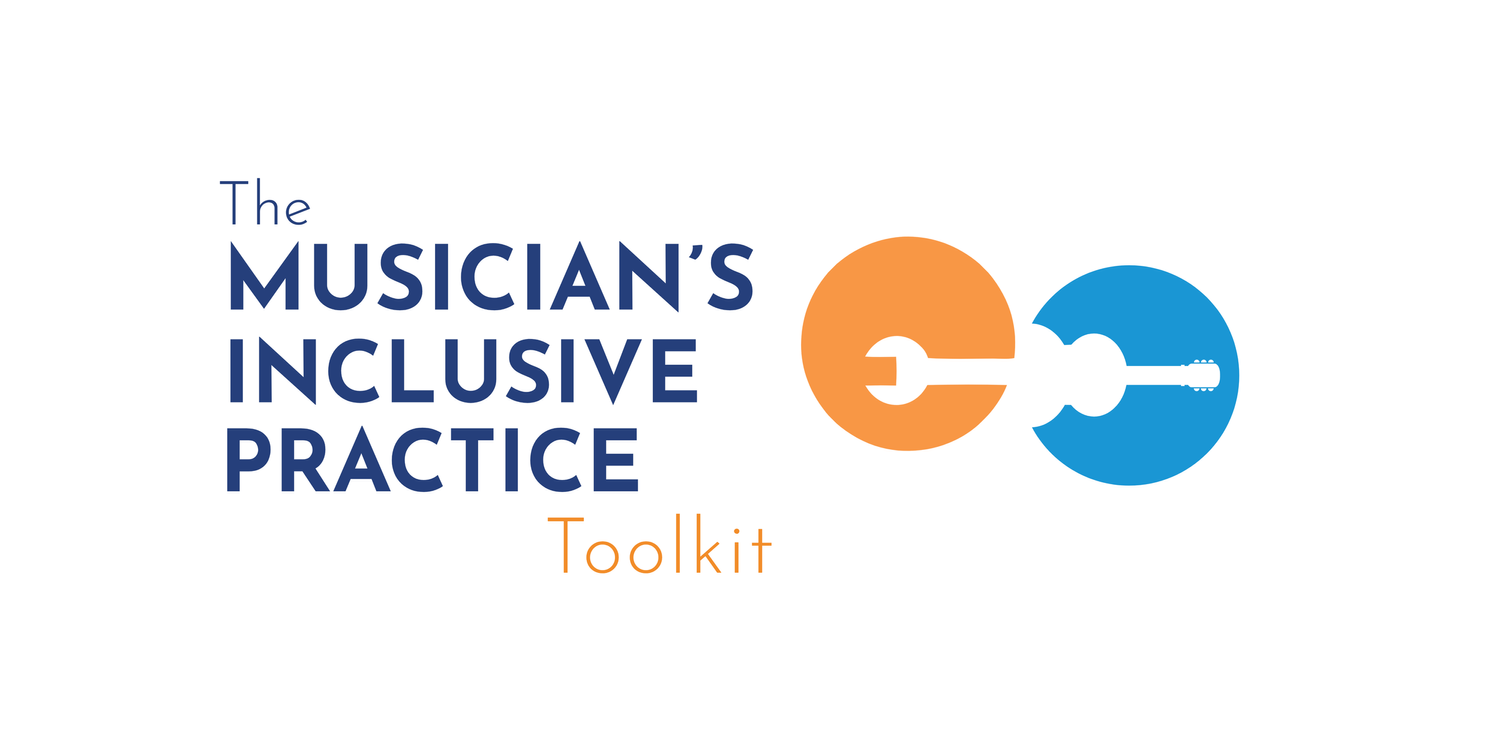ME
Sometimes a lot of checking and measuring can be damaging to action and it’s something many musicians are very good at already measuring, self-judgment.
Balance is about staying aware and conscious without getting stuck. Understanding our own motivations, privileges, and bias can help us understand ways we can check in to build community that centers inclusion and belonging.
This is a generative process. We are suited to do this.
Self-Awareness
Privilege and bias can be a difficult realities to explore, particularly for people with any privilege that they haven't been in touch with before. The key here is to really notice if you are having a defensive reaction yet instead of being ashamed of those realities or shutting down, consider that what is making you defensive has a lot of information to give and show you. After all, to change what's happening around us, we have to be aware and open to what's happening within us so we can start by changing ourselves first.
Start here (and click for a larger collection of links on this topic):
How We Show Up. Reclaiming Family, Friendship, and Community, by Mia Birdsong
An Abolitionist's Handbook by Patrisse Cullors is a great place to start as it is a handbook covering topics including having courageous conversations, practicing active forgiveness and more.
PRIVILEGE & BIAS
Situational Awareness
In escalated situations, it’s important to first recognize the escalation. De-escalation isn’t about agreeing with someone to pacify them, it’s about taking a pause, assessing the situation, and making a way for more clear-headed decisions and choices.
Start here (and click for a larger collection of links on this topic):
The Polyvagal Resilience Model and the range of resilience chart can be a helpful tools to visualize an optimal zone for action.
Right To Be offers some tips for conflict de-escalation and Calling all Crows gives more information about ways to build safer live music spaces, free from sexual violence.
DE-ESCALATION
Listening
Not much can be done without listening and the results are exponentially better with good listening. In addition to building trust and encouraging respect, learning to listen with intention and mindfulness might surprise you in its simplicity and the ways that it will alter your interactions. With some practice, you will find yourself learning more in conversations and arriving at common ground when in previous interactions that didn't seem possible.
Start here:
Can Deep Listening Heal Our Divisions?, by Simon Greer
Apologizing
Instead of setting out with a goal to not make mistakes, it might be more realistic to set out to get better at hearing difficult feedback, reflecting on what's been discussed and, when needed, giving genuine apologies.
With this as a strategy, we can go from a place of being stuck (since not making mistakes is an unrealistic goal) and getting to a place of healthier engagement.
Start here (and click for a larger collection of links on this topic):
A good starting place for those who are looking to strengthen their apologizing muscles is this post by Mia Mingus The Four Parts of Accountability: How to Give A Genuine Apology
LISTENING, FEEDBACK & ACTION
Self-Determined Care
Part of what’s important in this process is to remember our own health, our own bodies, and any previous trauma or triggers that come up from being in and navigating the music biz.
We may experience:
Physical depletion, fatigue, frustration, confusion and even verbal or physical abuse.
We may have to navigate:
The presence of alcohol, drugs and inappropriate behavior in the business and/or performance spaces with people in positions of power or even with fellow musicians.
We all have our own list of internal and external things that feel depleting and restorative. The goal here is to find your own balance and show up to this work with resilience and fortitude, which, in turn, helps create a healthier life for you. Not just because it feels better to do this, but also because the world we are working toward deserves the truth and attention of our best selves.
Start here (and click for a larger collection of links on this topic):
A different and broader way of understanding self-care is to expand the concept to self-determined care. adrienne maree brown explores this in her blog post how about a beginning of self-determined care?

